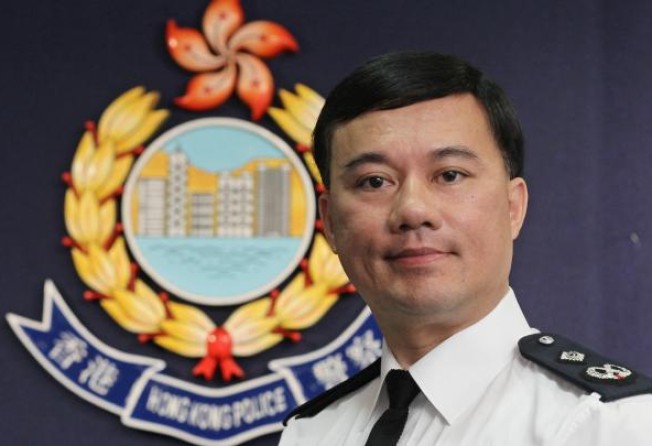January 1 protest leaders were making trouble, Paul Hung says
Outgoing senior police officer says key demonstators at January 1 rally were targeted to clear the crowd – not for political reasons

Leaders of a protest on January 1 were arrested because they were legally responsible for "making trouble" and also as part of a new tactic to disperse the crowd, a senior police officer said on the eve of his retirement.
In a wide-ranging interview, Paul Hung Hak-wai, the force's director of operations, explained the police perspective on the New Year's Day demonstration, when protesters called for the chief executive's resignation.
Hung said he was sad about the constant accusations that police had political motives for limiting protests and human rights.
Observers commented on the arrests of only nine protesters during the New Year's Day rally - including lawmakers "Long Hair" Leung Kwok-hung and Albert Chan Wai-yip - in contrast to large-scale arrests at previous events. Officers surrounded several leaders for a while before arresting them.
One picture of Leung, alone and surrounded by a large number of officers, sparked heated discussion in Hong Kong.
Hung said that while it was not fair to comment on just one photo, there was room for improvement in the police approach. But he said the crowd quickly dispersed once a few key leaders were arrested.
"Those who take the lead to make trouble are always the instigators. We think they should be punished by law. So this year we mainly [aimed to arrest] those who should take most of the responsibility for the whole incident," he said. "The arrests were quite effective in getting the others to leave the obstructed area. This is one of the solutions in handling protests."
Hung took issue with protesters' accusations that police make "politically motivated" arrests at protest rallies. "None of the officers, including me, had such reasoning in mind," he said. "When people ask why we arrest protesters or use violence, please rewind the screen to the earlier stage to see what happened before."
But Icarus Wong Ho-yin, the vice-convenor of Civil Human Rights Front, which organised the rally, said it showed police arrested people selectively and aimed to disrupt the organisations behind the protest.
Asked why other people occupying the road were not arrested on January 1 - in contrast to the mass arrests in 2011 - Hung said such events should be dealt with on a case-by-case basis. Officers were trying to persuade protesters to leave when they surrounded them.
He also said that with protests being organised online, it was difficult to find people to negotiate with.
Hung also referred to charges of political motivation during the 2011 visit by Vice-Premier Li Keqiang , when officers were given ambiguous orders such as "pre-empt embarrassments". He said no such wording was in the police commissioner's operational orders. Rather, it cropped up only in orders issued by certain commanders. Nor was such wording used in all orders issued for last year's visit by President Hu Jintao .
In the June 4 candlelight vigil, police were accused of dropping the crowd headcount by diverting people down a lane in Victoria Park. Hung said the lane was reserved for emergency use, and when it was opened for the crowd in subsequent years, people were happy about it.
But he said it was not the best option for safety, and a better solution would be sought with organisers.